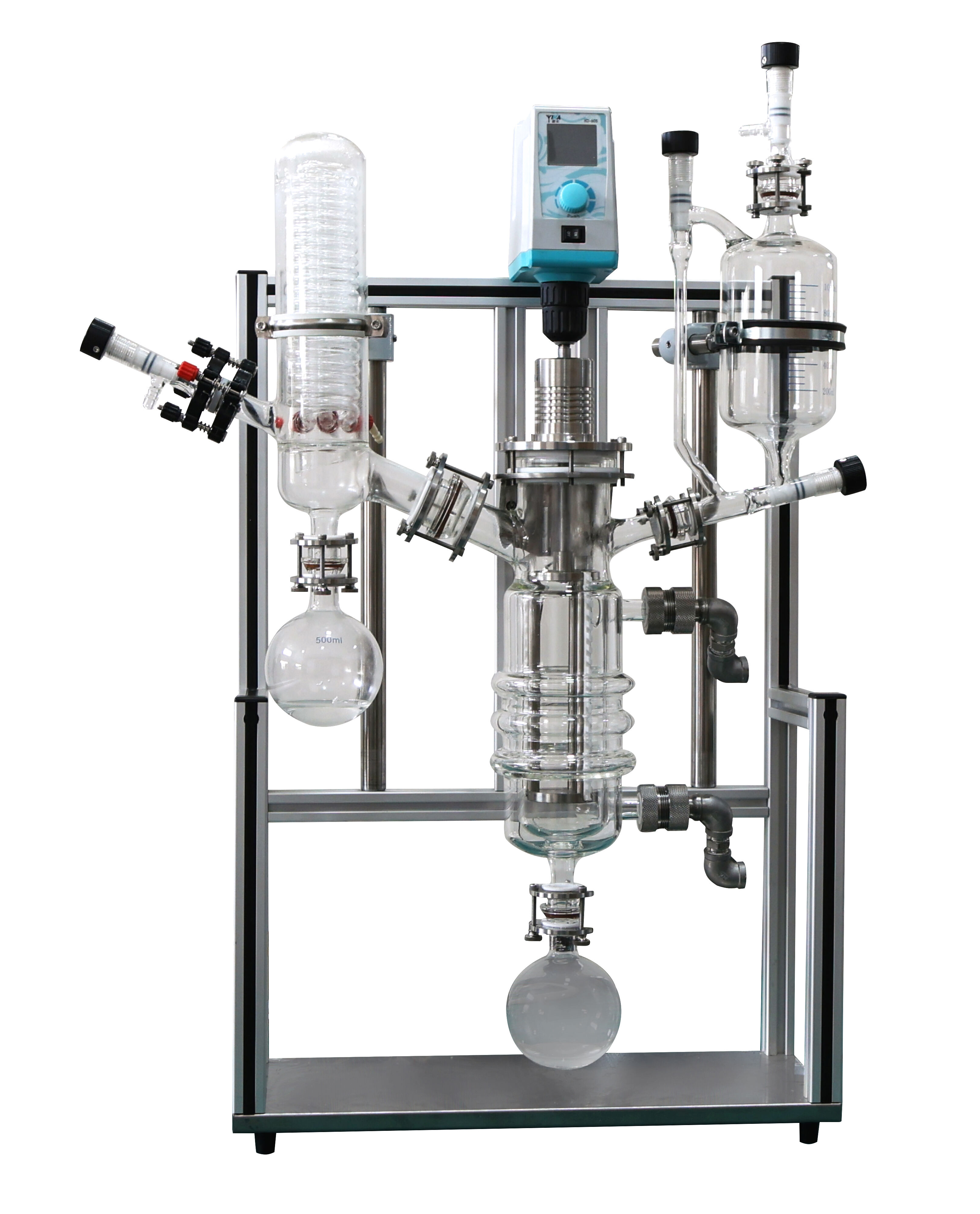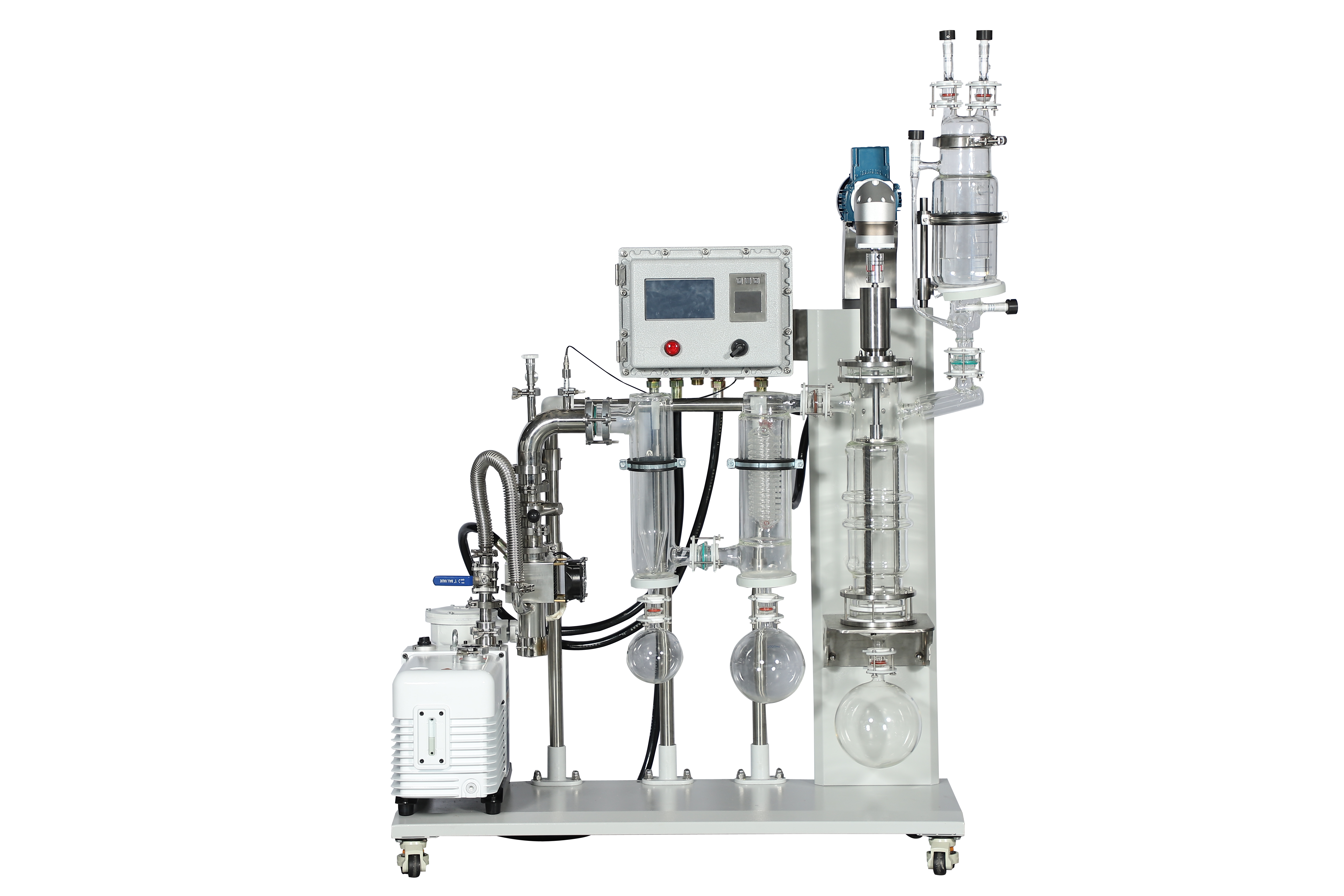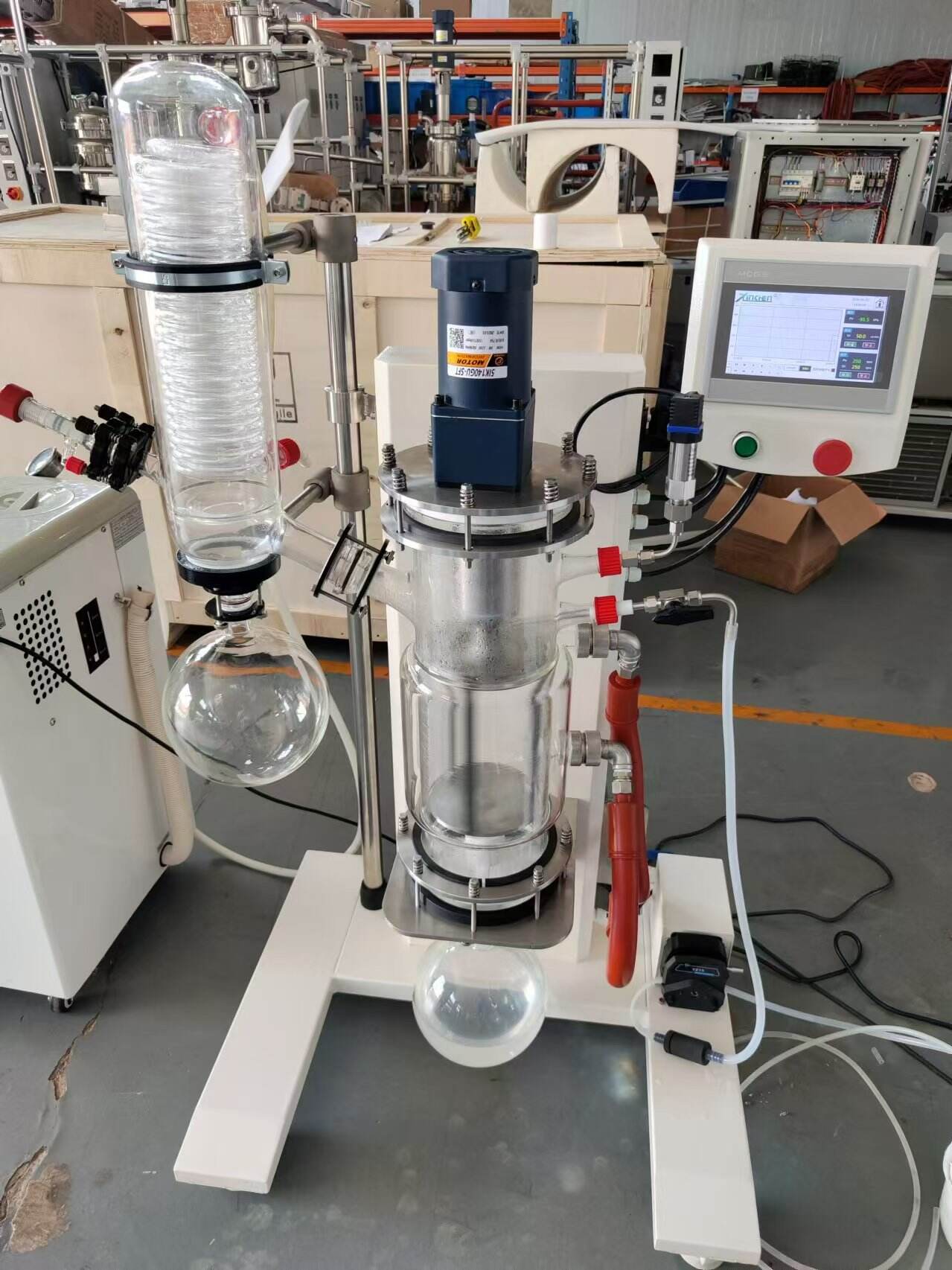thin film evaporator working principle
A thin film evaporator operates on a sophisticated principle that enables efficient separation and concentration of various substances. The system utilizes a heated cylindrical surface where liquid material is spread into a thin film, typically less than 1mm thick, through mechanical means or gravity. The working principle involves the continuous distribution of feed material across the heating surface while maintaining a constant thin film through either mechanical wipers or rotor blades. As the material flows downward, heat transfer occurs rapidly due to the minimal film thickness, causing volatile components to evaporate. The thin film formation maximizes the surface area for heat transfer and mass transfer, leading to efficient evaporation even for heat-sensitive or highly viscous materials. The system's design allows for short residence times, preventing thermal degradation while maintaining product quality. This technology finds extensive applications in chemical processing, pharmaceutical manufacturing, food industries, and waste treatment processes. The evaporator's ability to handle high-viscosity materials and heat-sensitive products makes it particularly valuable for concentrating solutions, recovering solvents, and purifying various substances. The combination of controlled temperature exposure and efficient mass transfer makes this technology essential for modern industrial processes requiring precise separation and concentration capabilities.


